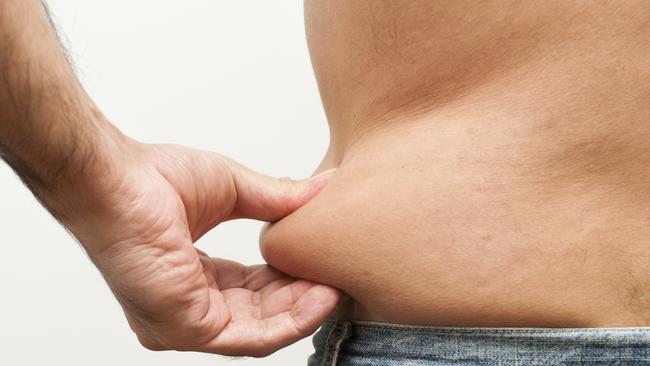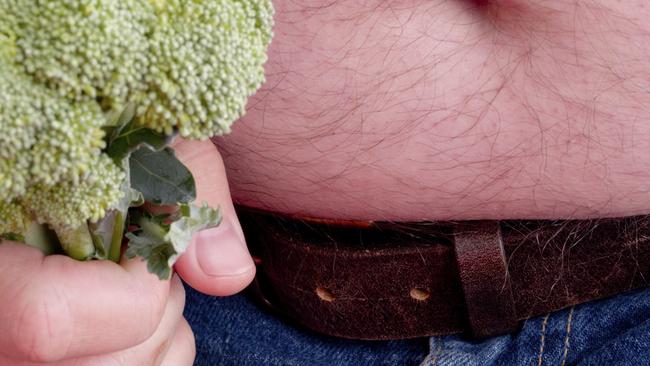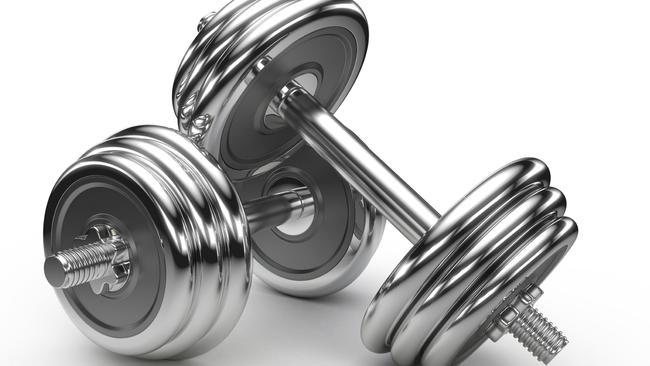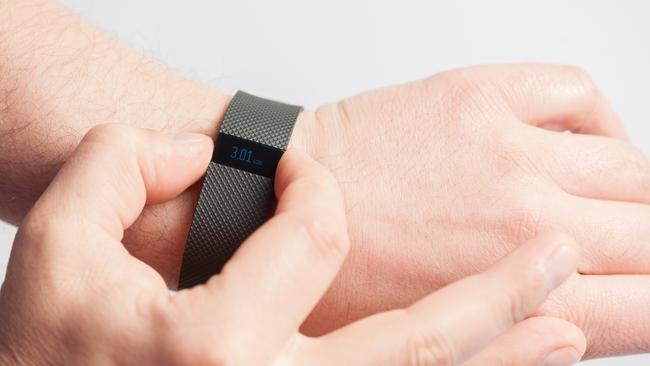Don’t look like a Hollywood star? It’s not your metabolism
New research says there’s no reason you should be fatter than you were at 25. You can’t blame your metabolism, so what’s to blame for the plague of the paunch?

Middle-aged spread can seem as random as it is unsightly. For every person plagued with a paunch and love handles post 40, there is another who escapes the cruel metabolic blow that apparently leads to pounds piling on. If you don’t have the physique of Halle Berry at 55 or Pierce Brosnan at 68, then you might have assumed it is your slowing metabolism that is partly to blame. But that excuse has now been debunked by the authors of a paper published last week in the journal Science, who confirmed that everything we thought we knew about midlife weight gain was wrong.
Using data from about 6500 people aged 8 days to 95 years, provided by more than 80 participating co-authors led by Duke University in North Carolina and including some experts from the UK, the researchers trawled through more than 40 years’ worth of information to come up with their results. Unexpectedly their results showed that metabolism does shift at different stages in life, but middle age is not one of them. After accounting for differences in body size and mass, they showed that calorie burning peaks in the first 12 months of life, with babies using up energy for rapid growth at a rate that is 50 per cent faster for their body size than for adults. After that it slows by 3 per cent per year until our twenties and then levels off until we reach our fifties. There is no surge in calorie requirements during the growth spurts of adolescence and no more than expected during pregnancy.
A downturn in metabolic rate didn’t even occur in women of menopausal age, a time when many find a layer of fat accumulating around their middle. In fact the results showed it isn’t until about age 60 that metabolic slowing kicks in, resulting in a gradual decline of up to 20 per cent by age 95.
IT’S NOT INEVITABLE, BUT …
They are findings that John Speakman, professor of biological sciences at the University of Aberdeen and one of the paper’s senior authors, describes as “very surprising”, but they deliver a sobering reality check for the rest of us. “Many people don’t gain weight in midlife,” Speakman says. “And I think it’s clear that it doesn’t inevitably have to happen.” Roy Taylor, professor of medicine and metabolism at Newcastle University, adds that the latest findings offer further proof that “midlife spread is not a matter of biology but of behaviour” and that “there is no biological reason why you should gain pounds as you age”.
It’s not all doom. Speakman says that besides the obvious — more wine and indulgent meals, less time spent working it off at the gym — there may be some small factors that do make it more difficult to maintain a flat stomach as we age. One theory that deserves more investigation is that our digestion changes. “It could be that as we go through middle age our guts become better at digesting the food we eat,” he says. “While we may be eating the same amount of food, our guts are absorbing more of it, so we are in a slight positive energy balance.”

Hormones also influence where fat is deposited on the body, with the belly becoming the preferred dumping ground for adipose tissue in men and postmenopausal women. “We know that menopausal women do have a greater tendency to accumulate fat around their midsection, but we now know that is not down to changes in metabolic rate,” says Duane Mellor, a registered dietitian and the head of nutrition and evidence-based medicine at Aston University’s medical school in Birmingham. “Rather, it is the result of hormonal changes in women, and to some extent men who experience a drop in testosterone, in middle age that results in differences in fat distribution around the body.”
At 62, Speakman says he is “right on the edge of the point where metabolic rate seems to turn southward”. To avoid the slippery slope towards a spare tyre or two appearing on his torso, he plans to remain “reasonably active and achieve 6000-10,000 steps a day and a BMI of 23”. He says you could do the same and more. Here are the other new rules for warding off the midlife spread.
CUT DOWN ON ALCOHOL
We all know by now that the recommended upper limit is 14 units of alcohol in a week, yet, according to the charity Alcohol Change UK, 24 per cent of adults in England and Scotland regularly drink more than that amount. And it’s not youngsters who are packing it away. Statistics show that those aged 16 to 24 are the least likely to drink and it is the 45 to 64-year-olds who consume the most alcohol on a regular basis. It doesn’t matter what you drink, as researchers have shown that too high a consumption of any alcoholic drink contributes directly to weight gain.

With seven calories in every gram of pure alcohol, it is easy to rack up a considerable number, especially when you add sugar and cream-laden mixers and flavourings. Last year a study involving 14 million men and 12 million women presented at the virtual European and International Congress on Obesity showed that men who drank half a glass of wine a day or a quarter of a pint of beer a day were found to be 10 per cent more prone to obesity, while women consuming half a glass of wine a day were at a 9 per cent greater risk of becoming obese. “There is a tendency for calories from alcohol to slip down more easily in middle age,” Taylor says. “If you drink, stick to no more than the recommended levels and lose the extra calories consumed by cutting them elsewhere in your diet.”
START TO WARD OFF MUSCLE DECLINE EARLY
Muscle burns more calories than fat and the new study suggests the gradual decline in muscle mass as we age may be partly to blame for weight gain as we get older. Speakman says “it seems that there is something going on at the cellular level as well within muscle tissue” as we age that may play a role and that this is all the more reason to try to maintain your muscle mass from at least your mid-thirties onwards. “Muscle is an expensive tissue in that it needs constant fuelling with quality calories that it burns off at a great rate,” Mellor says. “Any kind of activity is helpful, from resistance training with bands to weight-bearing cardio and just moving about more and lifting things more often.”

Weight training is an option and one new study of 12,000 middle-aged participants found that those who did resistance-type exercise for a weekly total of one to two hours were one third less likely to become obese over the six years of the study based on measurements of their body fat and waist circumference.
TO LOSE LOVE HANDLES YOU WILL NEED TO DIET
If you already have a paunch, then Speakman says you will need to eat less to lose it. “At any age you can only lose weight by eating less calories,” he says. “Weight maintenance is easier if you are more active, but doing more physical activity to cause weight loss seems fairly useless.” Avoiding processed and refined foods should be your first step. “The foods that are particularly troublesome in terms of encouraging us to overeat relative to our demands have a mix of fat (about 40-60 per cent) and carbs (20-30 per cent) – think ice cream, cakes and pizzas,” Speakman says. “Randomised controlled trials of low-carb diets like keto, or the classical low-fat diets, are pretty much equally successful and cause weight loss in about 80 per cent of people who start them, but whatever route you choose, once you get down towards your target then it seems from the evidence that those who keep the weight off are the ones who increase physical activity at that stage.”
DON’T LIVE ONLINE
There was an exceptional spike in online activity last year, but Mellor says that a steady drop in daily activity has long contributed to a rise in serious middle-age spread in the past two decades. He points to studies into our “gluttony and sloth” by the Institute for Fiscal Studies that suggest weight gain is associated with a decline in the strenuousness of work and daily life. “It is the simple acts of daily living that have made it easier to pile on pounds in the past 40 years,” he says. “We shop online, which means fewer calories expended wandering around a store, our cars have power steering, which requires 20 fewer calories per journey than manual steering, and we use tumble dryers in place of washing lines, which saves a number of calories per week.” These seemingly irrelevant activities need to be replaced with different forms of calorie burning. “You will need to add more daily steps the more activities you do online and the more sitting you do,” Mellor says.

THERE’S NO REASON YOU SHOULDN’T BE THE WEIGHT YOU WERE IN YOUR TWENTIES
Taylor says the latest study underpins the fact that any weight gained after the age of 20 is unnecessary. “Provided you are not obese in your twenties, the weight you are in that decade has been shown in studies to be the healthiest,” he says. “There is absolutely no reason to put on weight after that and now that it is confirmed your metabolism doesn’t somehow contribute to that happening, we can appreciate better that any weight that is gained is just lard.” Mellor agrees, suggesting that our weight between ages 20 and 25 is a more reliable indicator of good health and fitness than a BMI measurement. “If you aim to stick to that weight, your risk of middle-age spread and its unhealthy side effects will be minimal,” he says.
GET YOUR PARTNER TO THE GYM
It’s all too easy to slip into the evening routine of Netflix and a glass of wine, but if one half of a couple makes moves to become more active it is likely the other will follow suit. “In science we call this concordance of behaviour and it basically means that we gradually morph into lifestyle patterns similar to the person or people we are living with,” Mellor says. “Conversely, if they change their habits, we most likely will too.” There’s clear evidence that the healthy actions of others rub off on us, but we may need encouragement to match input of effort. A study this year showed that couples often decreased their speed when walking together.
YOU WILL NEED FEWER CALORIES AFTER 60
Even if you have staved off the spare tyre in your forties and fifties, you will need to keep tabs on your calories after 60. In the new study researchers showed that metabolism declined at a rate of 0.7 per cent per year from the beginning of this decade: hardly a dramatic shift, but one that has an effect. By your nineties you will need 26 per cent fewer calories per day than you did in midlife, and if you don’t make adjustments the pounds will creep on. “As we get older our appetite naturally starts to decline, perhaps to keep pace with this fall in needs,” Speakman says. “You may not need to actively reduce your calorie intake in later life unless you are gaining weight uncontrollably, in which case you will need to cut down.”
The Times







To join the conversation, please log in. Don't have an account? Register
Join the conversation, you are commenting as Logout